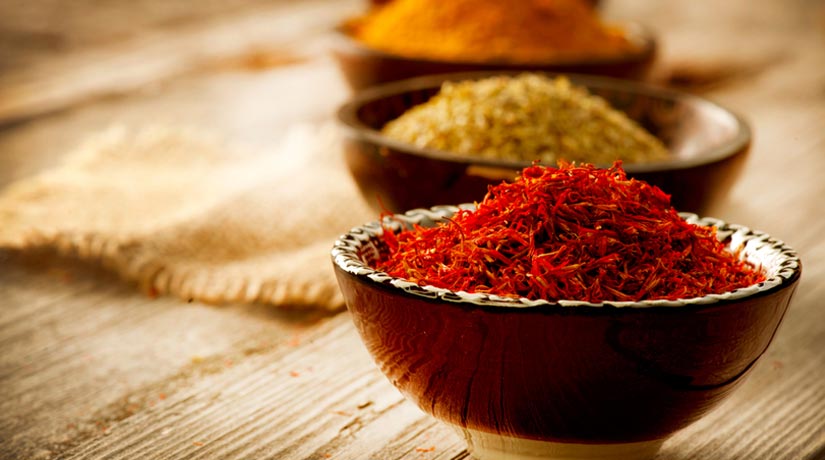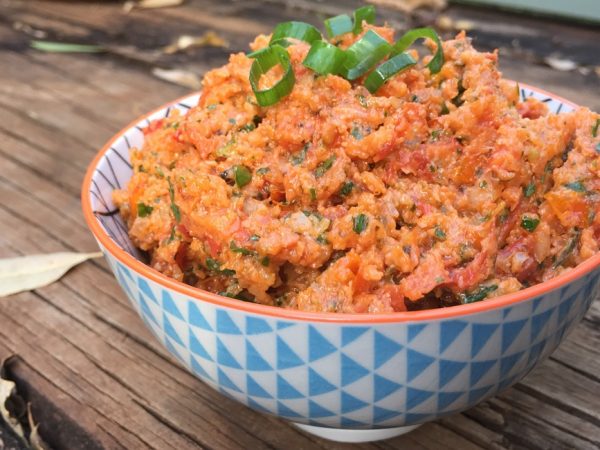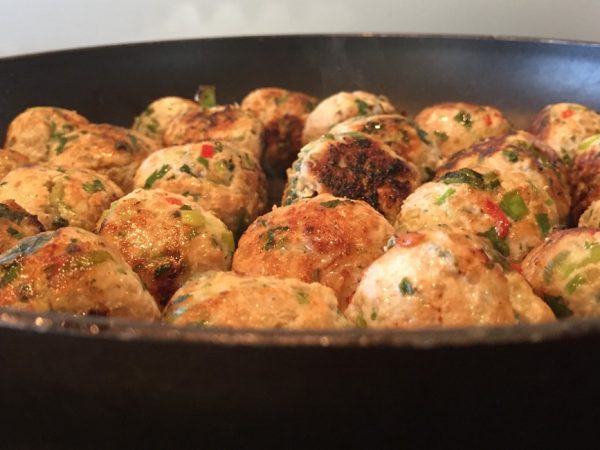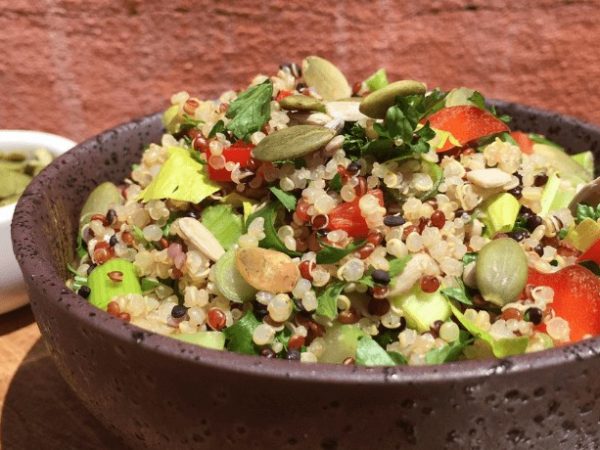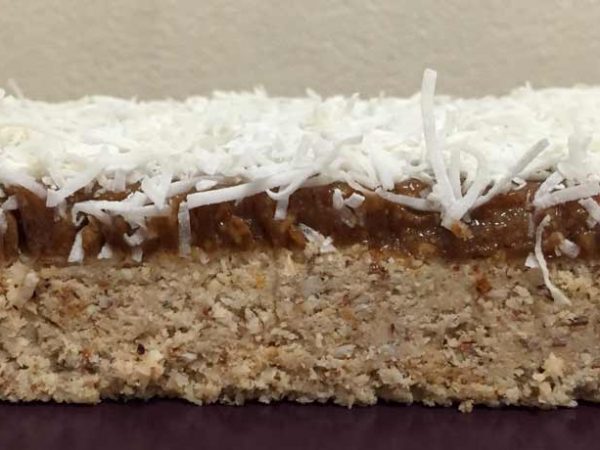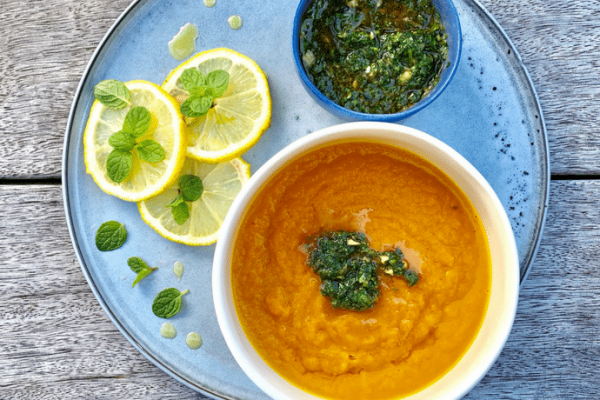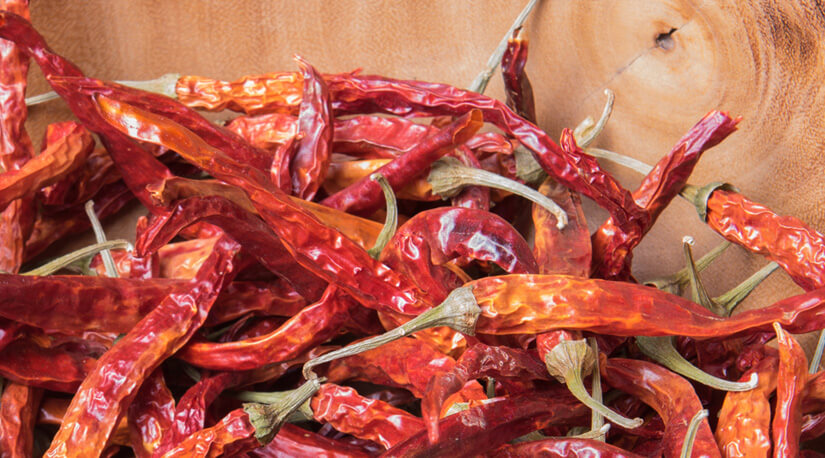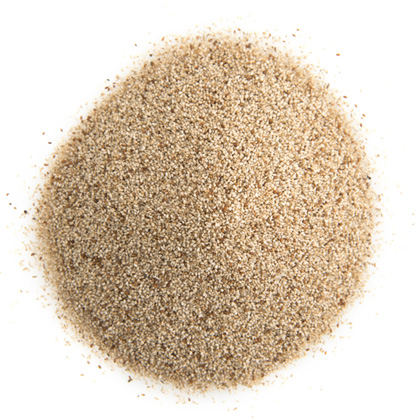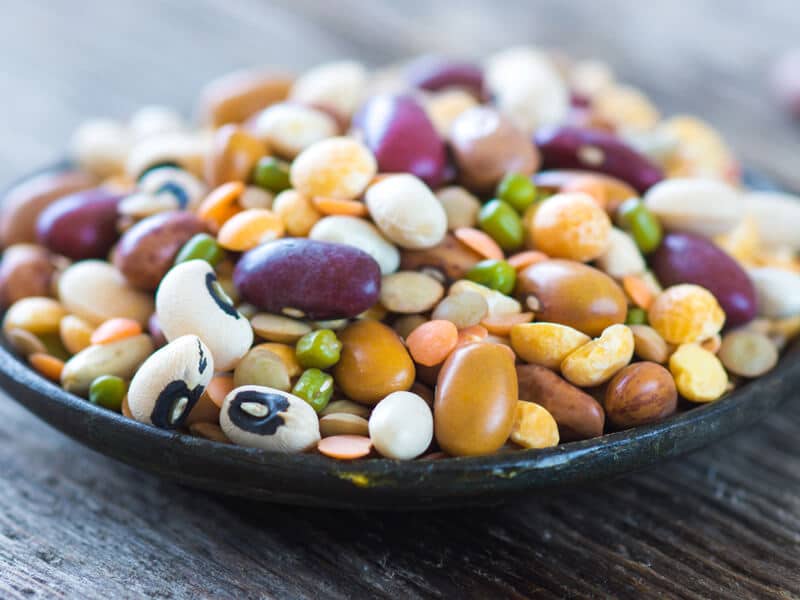Not only do herbs and spices improve the taste of our food, they also provide a range of nutrients and health benefits. Some spices are known to boost metabolism, improve insulin sensitivity and improve digestion. Many herbs and spices also contain more disease-fighting antioxidants per gram than fruits and vegetables.
Here are some common herbs and spices, their health promoting benefits, and how to incorporate them into your diet:
Cinnamon
Cinnamon is well known for its ability to stabilize blood sugar levels and improve insulin sensitivity, which can help people with Type 2 Diabetes. When sprinkled on high carbohydrate foods, cinnamon will slow the rate of stomach emptying, reducing the rise in blood sugar levels. Cinnamon has one of the highest antioxidant levels and has been shown to reduce inflammation and blood triglyceride levels. Cinnamon is an excellent source of manganese and fiber and a very good source of calcium. Manganese is important for healthy bones, formation of connective tissue and absorption of calcium, amongst other functions.
Sprinkle over oats, pancakes, homemade muesli bars or protein balls, roasted sweet potato and pumpkin, or add to smoothies. Cinnamon is also delicious as part of a chilli spice mix. Try simmering a cinnamon stick with plant-based milk and a dash of nutmeg (optional honey to taste), for a warming winter drink.
Cayenne Pepper
A little goes a long way with this hot spice! The active ingredient ‘capsaicin’ in cayenne boosts metabolism which increases your body’s ability to burn fat. It also increases circulation, allowing more oxygen and nutrients delivery throughout the body. Just be careful if you have a sensitive stomach as too much can irritate the stomach lining. Cayenne Pepper is an excellent source of vitamin A, C and B6. Vitamin A is important for eyesight.
Use cayenne to flavor meat, poultry or spice up fish dishes. Delicious when combined with paprika and sea salt to chickpeas before roasting.
Turmeric
Turmeric has long been studied for its strong anti-inflammatory and antioxidant benefits. The active ingredient ‘curcumin’ has been found to improve the regulation of inflammation, oxidation, cell signaling, blood sugar levels, blood fat levels, and brain levels of the omega-3 fatty acid called DHA (docosahexaenoic acid), among its many benefits. Turmeric has also shown to enhance detoxification, reduce cancer risk, improve brain function as well as potential therapeutic benefits for some autoimmune conditions including Crohn’s and Rheumatoid Arthritis.
Warm up with a delicious turmeric golden latte. Add turmeric to roasted veggies, curries, meat and poultry, egg dishes, or in smoothies (try turmeric and ginger with banana, pineapple or mango, a handful of spinach leaves and a cup of plant-based milk).
Ginger
Ginger can improve digestion and is particularly useful at easing nausea and stomach upset. Studies have shown it to be useful at reducing nausea and vomiting during pregnancy. Ginger is an excellent carminative (relieves intestinal gas), as well as an intestinal anti-spasmolytic (relaxes and soothes the intestinal tract). Ginger contains potent anti-inflammatory benefits. It can also help detoxification pathways by stimulating digestion, circulation and sweating. This may help cleanse the liver, colon and other organs and boost immune function.
Add ground ginger to your cup of tea, or water bottle with a little lemon. Ginger is also delicious in stir-fries, curries, slow cooked dishes, or over baked fish. Try out a healthy gingerbread cookie recipe.
Oregano
Oregano is an effective anti-bacterial, with studies showing the volatile oils in oregano inhibiting the growth of bacteria. Oregano contains many phytonutrients including potent antioxidants, and is a good source of fiber, manganese, iron and calcium, and excellent source of vitamin K. Vitamin K is important for blood clotting when needed as well as the maintenance of healthy bone density, reducing the risk of fractures and osteoporosis.
Oregano is commonly used in Mediterranean dishes including pasta, pizzas, to flavor meat and poultry. It is delicious when added to sautéed mushrooms and onions, omelets and frittatas. Add some oregano into your olive oil to infuse with the essence of oregano.
Coriander Seeds
Coriander seeds are high on the list of healing spices due to its exceptional phytonutrient properties. Phytonutrients have been scientifically researched and found to allow for optimal cellular function and communication. When our cells are communicating effectively, enzymatic and biochemical reactions take place, required for optimal functioning of our body. This all leads to healthier tissues and organ systems, detoxification, proper digestion and metabolism function, and a strong immune system. Research has found that coriander helps to control blood sugar, cholesterol and free radical production. It is also a very good source of vitamin K.
Add coriander seeds to soups and broths, slow cooked dishes, curries, risotto or poached fish. Add coriander seeds to your pepper grinder with pepper to add extra flavor to all dishes. Try a homemade falafel recipe with coriander seeds.
Fennel Seeds
Fennel seeds are an excellent source of a broad range of essential minerals including copper, potassium, calcium, zinc, iron, manganese selenium and magnesium. Zinc and selenium work together in acne healing and hormonal regulation. Fennel seeds have been found to have a wide range of medical purposes, including increasing milk production in lactating women. It is commonly used in herbal remedies particularly in Ayurveda. The oil in the seeds is found to be carminative, calming the nerves and promoting mental clarity. Fennel seeds have been found to reduce fluid retention, reduce asthma symptoms, help purify the blood and used in tea to relieve constipation, indigestion and bloating.
You will get more flavor from fennel seeds if you grind them just before cooking. Fennel seeds are used both in sweet or savoury dishes, is delicious in a spice blend, as a dry rub for meat and poultry, and sautéed with onions. You can add ground fennel to healthy oat cookies (perfect as a snack for breastfeeding mamas). Fennel is commonly used in tea blends.
Tris xx
References:
- https://articles.mercola.com/sites/articles/archive/2012/11/26/herbs-and-spices.aspx
- https://authoritynutrition.com/top-10-evidence-based-health-benefits-of-turmeric/
- https://www.whfoods.com/genpage.php?tname=foodspice&dbid=68
- https://www.whfoods.com/genpage.php?tname=foodspice&dbid=72
- https://www.whfoods.com/genpage.php?tname=foodspice&dbid=73
- https://www.whfoods.com/genpage.php?tname=foodspice&dbid=70
- Am J Clin Nutr. 2 007 Jun;85(6):1552-6

